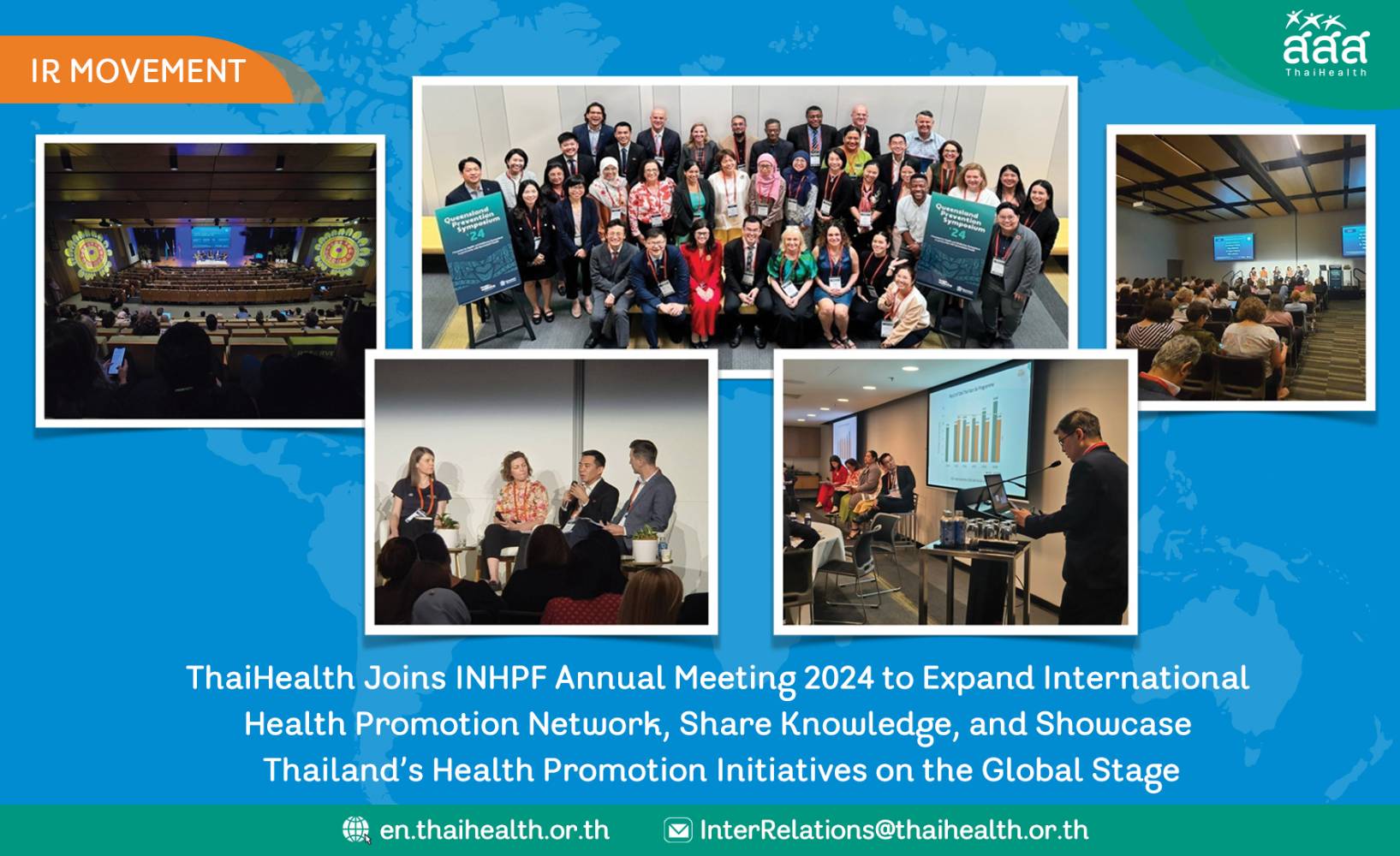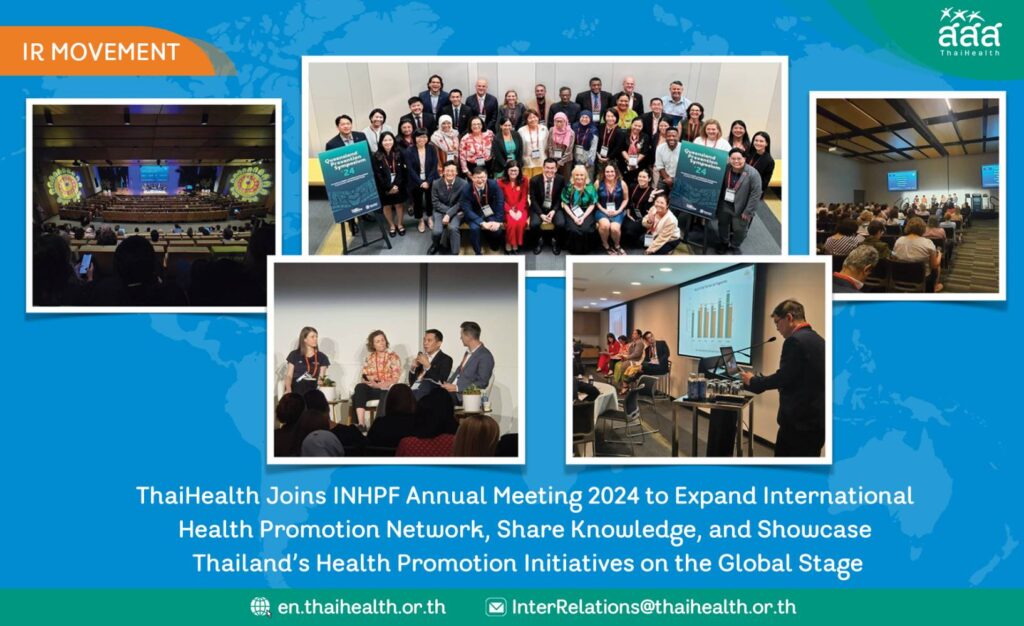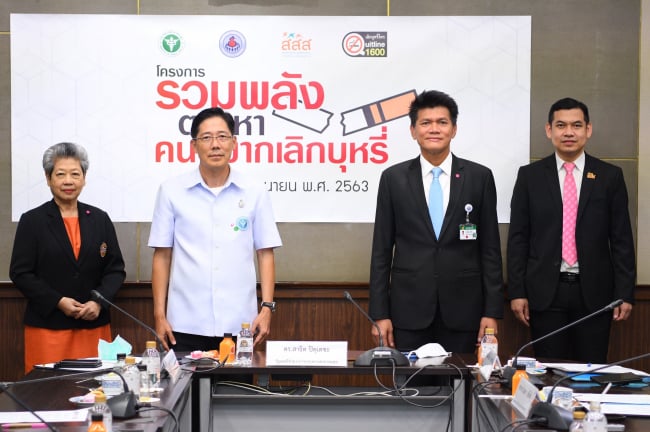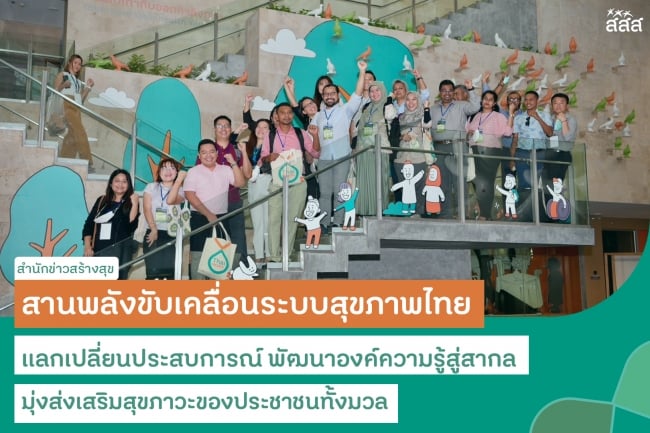
ThaiHealth Joins INHPF Annual Meeting 2024 to Expand International Health Promotion Network, Share Knowledge, and Showcase Thailand’s Health Promotion Initiatives on the Global Stage

Recently, a delegation from ThaiHealth, led by Pongthep Wongwatcharapaiboon, M.D., CEO of ThaiHealth, and Dr. Nuttapun Supaka, Director of Partnership and International Relations Section, attended the 21st Annual Meeting of the International Network of Health Promotion Foundations 2024 (21st INHPF Annual Meeting 2024) and Queensland Prevention Symposium, held from September 2-5, 2024, in Queensland, Australia. The event was co-hosted by Health and Wellbeing Queensland, one of the member countries of the International Network of Health Promotion Foundations (INHPF), and Queensland Health.
The meeting featured the Meeting of the International Network of Health Promotion Foundations, or the INHPF Annual Meeting 2024, which is the annual conference of network members, including ThaiHealth, VicHealth, HealthWay, Health and Wellbeing Queensland, the Singapore Health Promotion Board (HPB), the Korea Health Promotion Institution (KHEPI), the Tonga Health Promotion Foundation (TongaHealth), and the Health Promotion Administration (HPA) of Taiwan. In addition, the international conference Queensland Prevention Symposium 2024 was held, which served as a platform for discussing health promotion issues in Queensland and other countries, such as e-cigarettes, physical activity, health promotion among children and adolescents, and social marketing.
Pongthep Wongwatcharapaiboon, M.D., CEO of ThaiHealth, commented on attending the meeting, “Learning the ideas and practices of health promotion from other countries will strengthen ThaiHealth’s capacity to advance health promotion initiatives in Thailand. We will draw on this knowledge to achieve that. Additionally, it presents a valuable opportunity to establish new partnerships between INHPF network member countries and other health promotion organizations.”
Approximately 200 participants from a variety of sectors joined this meeting, encompassing government, academia, and the public sector, from numerous countries such as Thailand, Singapore, Chinese Taipei, South Korea, Fiji, the United States, Vietnam, Brunei, Malaysia, Australia, Bangladesh, and Tonga. The issue of shared concern among various countries is e-cigarettes. There is a consensus on the need for radical measures, including strict law enforcement, education, and various smoking cessation services tailored to each country’s context. Some countries have implemented innovative initiatives. For example, South Korea provides a variety of smoking cessation programs, such as door-to-door services where healthcare professionals visit individuals at home or work to provide counseling and encourage smokers to seek treatment. Meanwhile, Taiwan has integrated education about the dangers of traditional and e-cigarettes into school curricula from kindergarten through university and developed learning materials tailored to each education level.
Moreover, Queensland, Australia, places strong emphasis on preventing non-communicable diseases (NCDs) within communities. In particular, the Logan Healthy Living program has been launched as a health center to assist residents of Logan in managing and preventing NCDs, such as type 2 diabetes. The program adopts a holistic approach, addressing physical, mental, emotional, and social aspects, and offers a wide array of services and activities free of charge to patients, such as counseling, exercise, physiotherapy, nutritional education, information on diabetes, and psychological support.
Patients in this program are given advice, participate in the 8-week intensive activities, and receive ongoing support for 12 months. The aim is to reduce hospitalizations in Logan. Therefore, the Logan Healthy Living program is Australia’s exemplary initiative for Thailand to adopt in order to enhance its primary healthcare system, potentially contributing to a reduction in the number of bedridden older patients.





